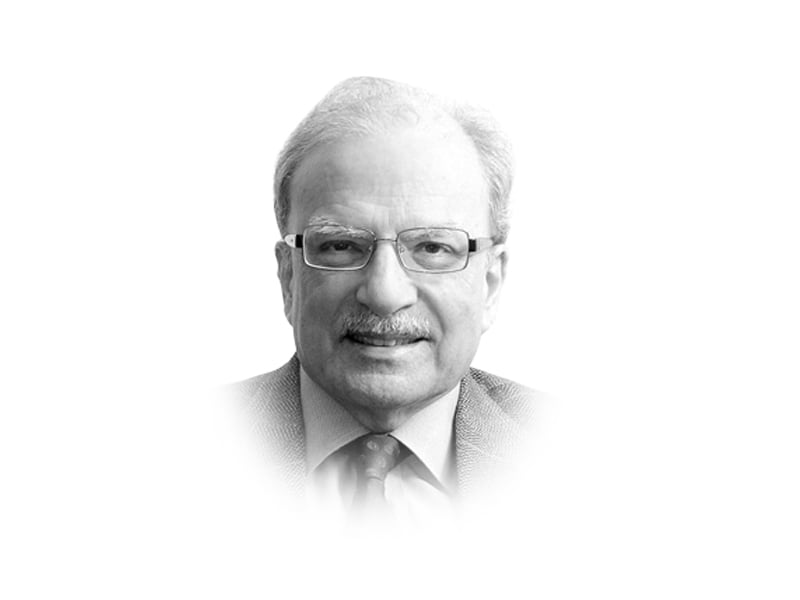
It took former American President Donald Trump’s poor understanding of economics – in particular its global aspects – to bring the world to an economic breaking point. He has been gone now for more than two years but what his legacy remains. In his inaugural address in January 2017 delivered from the steps of the United States Capitol that houses the two houses of the United States legislature, he laid down a new approach his administration would follow once he took office. He blamed the policymakers who occupied the various offices of the vast United States bureaucracy and his predecessor Barack Obama from keeping his country from achieving its great potential. He was particularly critical of his immediate predecessor and pointed his finger at Obama who had served as the United States president for eight years – from 2009 to 2017 – for entangling America into global economic and political arrangements that retarding his country’s progress.
He promised to make America great again by focusing public policy on what was good for America by having his country, if need be, to act alone. This approach appealed to millions of white, poorly educated people who had lost their jobs or were under-employed as the American industry took its operations to the countries that offered better working. China was one country that had benefited greatly from the relocation of large portions of American industry from what was once the industrial belt. The people heard Trump and became his ardent supporters. They put the acronym, MAGA – Make American Great Again – on the red hats which they wore as they attended the large rallies Trump addressed. He repeatedly spoke against two targets – the deep American state and China – and promised to liberate his country from the hold of both.
In keeping with his promises, he walked away from a several international treaties, agreements and understandings. Among those he pulled out of was the 2015 Paris Climate Accord and the global trade pact on which President Obama was working when he left office. He paid little attention to the World Trade Organization, the WTO, and refused to be guided by the organization’s support of relatively free flow of goods and commodities among member nations.
Trump had little interest in promoting democracy around the world – a mission followed with great passion by the American Presidents who preceded him. He openly cultivated strong and authoritarian leaders including Valdmir Putin, the Russian president; Kim Jung Un, the North Korean president; and initially Xi Jinping, the Chinese president. His approach towards Beijing changed as he was persuaded by his advisers that America could not become great again if China continued to develop rapidly and acquired the wherewithal to catch up with the United States. Of particular concern to Trump and surprisingly his successor President Joe Biden was the progress China was making in developing dual-use technologies – technologies that had both economic and military aspirations. Trump had imposed tariffs on several Chinese exports to the United States and imposed restrictions on the flow new technologies and equipment that would facilitate China’s progress. Biden kept the tariffs in place and added more restrictions to the dealings with Beijing.
At the time of this writing, it appears that the global economic system is likely to be split into two parts. This fear was the theme of a long interview given to David Lynch of The Washington Post by Kristalina Georgieva, the Bulgarian economist who, after having worked at the World Bank for several years, was selected to head the International Monetary Fund, the IMF. She worried about what she called “geoeconomic fragmentation”. According to the IMF Chief, after more than thirty years of increased global integration, the worsening US-China relations were threatening a permanent global divide. “A populist tidal wave had transformed the United States – one of the principal advocate of trade liberalization – into a champion of inward-looking industrial policy,” wrote Lynch in the story he did for his newspaper after the conversation with Georgieva.
According to the IMF, potential losses in global output could reach $7 trillion. Mentioning this estimate of her agency, Georgieva said, “The reason I’m concerned about fragmentation – based on my personal experience – is that I know the consequences: We would all be poorer and less secure” having experienced life in Bulgaria when it was part of the USSR. Having found her way to the West and become a major policymaker in two of the most important global institutions, the World Bank and the IMF, Georgieva is disappointed at the turn international relations have taken. The lack of trust between the United States and China is at the center of her concern about world fragmentation. Presidents Clinton, George W Bush and Barack Obama had hoped that Beijing would move towards Western-style liberal governance, perhaps not go all the way but the direction would be clear. It was that hope that made them bring China into the WTO. Even if conservative elements in the policymaking circles in Washington would like their country to walk back, the liberal community likes to work towards robust commercial ties.
Despite the harsh rhetoric about Beijing that came from the White Houses of Trump and Biden, a full decoupling of the United States and China would hamstring global growth and hurt both the consumers in rich and poor countries. Globalization, which became the feature of the world economy beginning in late 1980s, lifted 1.5 billion people out of extreme poverty, mostly in China but also in South Asia. A world divided with the United States and China working to hurt each other would create a global disaster. However, the two countries may be able to pull back. With the visit to Beijing by four senior American leaders in the past few months, a dialogue has begun that may produce positive consequences. It is best to conclude this piece with another quotation from Georgieva in her conversation with Lynch: “The reason why populist tendencies are flourishing is the fact that genuine grievances of people have been addressed. Globalization did not lift up the world economy and did not work for everyone. It did lead in countries like the United States to loss of employment on a scale that is far too large to be ignored. We have to recognize that it would only work if the grievances of those who are negatively impacted are addressed.”
Published in The Express Tribune, September 4th, 2023.
Like Opinion & Editorial on Facebook, follow @ETOpEd on Twitter to receive all updates on all our daily pieces.














COMMENTS
Comments are moderated and generally will be posted if they are on-topic and not abusive.
For more information, please see our Comments FAQ